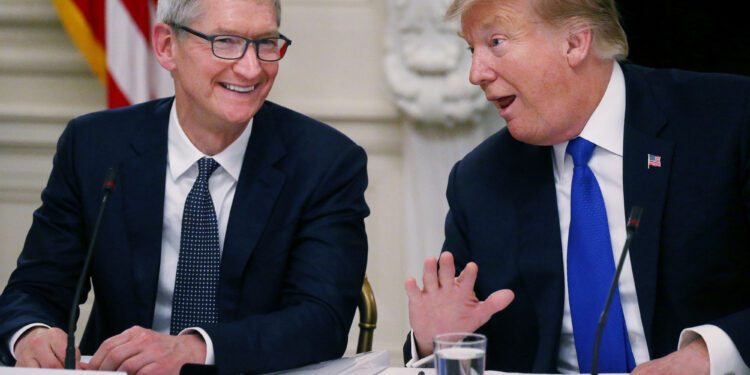COPILOT (Microsoft) helped me write this OpEd | 23 May 2025 @Copilot
==
A 25% tariff on Apple for not bringing jobs back to the U.S.? Sounds like a bold, patriotic move—until you consider the real-world implications. If Apple were to manufacture iPhones in the U.S., the price would surge from around $1,000 to a staggering **$3,500 or more**. The same logic would apply to Samsung and other smartphone brands. This isn’t about job creation—it’s about economic isolation, and consumers will pay the price.
The Reality of Smartphone Manufacturing
Trump’s proposed tariffs suggest that tech giants should shift production to America. But **no mainstream smartphone is fully made in the U.S.** The closest option? Purism’s **Librem 5**—a niche device that most consumers (myself included) have never heard of. My kids would rather call the RCMP on me than trade their Samsung and iPhones for an alternative.
Consumers across the world—from North America to Uganda—rely on Apple, Samsung, and Huawei because they’re affordable, efficient, and widely supported. Tariffs will make these devices unaffordable, forcing people to stick with older technology or pay exorbitant prices.
The Attack on Academia and Innovation
Trump’s move to limit international student admissions at Harvard is another blow to America’s future. Many of the biggest names in U.S. tech—including the CEOs of Google, Microsoft, and NVIDIA—were immigrants who studied at Ivy League institutions. Blocking international talent weakens innovation, discourages global collaboration, and ultimately harms the economy.
Even Canada, historically known for its welcoming immigration policies, is curbing international student visas. Yet, some of Canada’s greatest tech successes—like BlackBerry—came from immigrants studying at the University of Waterloo. The pattern is clear: immigration fuels innovation. Restricting it will choke future progress. Even the God Father of AI, Prof. Geoffrey Hinton (University of Toronto, whose PhD students proceeded to work for OpenAI) is an immigrant. **Disclosure, Martha Leah Nangalama went to University of Toronto**
The High Price of Isolation
Tariffs on smartphones, restrictions on international students, and economic isolation are policies that don’t benefit the average citizen. Instead, they drive up costs, stifle innovation, and weaken global competitiveness. America (and Canada) must recognize that progress comes from collaboration—not isolation.







Discussion about this post